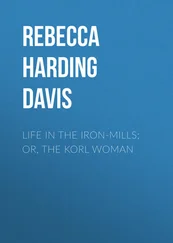When (v5) - Rebecca Stead
Здесь есть возможность читать онлайн «When (v5) - Rebecca Stead» весь текст электронной книги совершенно бесплатно (целиком полную версию без сокращений). В некоторых случаях можно слушать аудио, скачать через торрент в формате fb2 и присутствует краткое содержание. Год выпуска: 2009, ISBN: 2009, Издательство: a cognizant original v5 release october 23 2010, Жанр: Старинная литература, на английском языке. Описание произведения, (предисловие) а так же отзывы посетителей доступны на портале библиотеки ЛибКат.
- Название:Rebecca Stead
- Автор:
- Издательство:a cognizant original v5 release october 23 2010
- Жанр:
- Год:2009
- ISBN:9780375892691
- Рейтинг книги:4 / 5. Голосов: 1
-
Избранное:Добавить в избранное
- Отзывы:
-
Ваша оценка:
- 80
- 1
- 2
- 3
- 4
- 5
Rebecca Stead: краткое содержание, описание и аннотация
Предлагаем к чтению аннотацию, описание, краткое содержание или предисловие (зависит от того, что написал сам автор книги «Rebecca Stead»). Если вы не нашли необходимую информацию о книге — напишите в комментариях, мы постараемся отыскать её.
Rebecca Stead — читать онлайн бесплатно полную книгу (весь текст) целиком
Ниже представлен текст книги, разбитый по страницам. Система сохранения места последней прочитанной страницы, позволяет с удобством читать онлайн бесплатно книгу «Rebecca Stead», без необходимости каждый раз заново искать на чём Вы остановились. Поставьте закладку, и сможете в любой момент перейти на страницу, на которой закончили чтение.
Интервал:
Закладка:
“Don’t laugh, don’t call them jerks, don’t take off running,” she said. “Do nothing. Act as if they’re invisible.”
My second wish was that the laughing man would be gone, or asleep, or at least distracted by someone or something else when we walked by.
We got to Broadway. “Want to stop for a soda?” I said.
Annemarie shrugged. “No thanks.”
We started toward Amsterdam. I tried to follow Annemarie’s conversation but mostly just squinted to see down the block. By some miracle, the boys weren’t out in front of the garage. I offered up a silent thank you to the universe. And then we started across the street to my corner.
“Angel!” the laughing man called out. He was looking right at Annemarie, and I couldn’t help thinking that, depending on your idea of heaven, Annemarie might appear to be something like an angel. Her coat was pure white and went all the way down to her toes, even though it was only the middle of November and really not all that cold. How her dad kept that coat so clean is still a mystery to me.
“Angel!”
I laughed. I was trying to show Annemarie how absolutely downright funny it was to have a weird homeless guy here on my corner. My very own weird homeless guy!
“Ha. ‘Angel,’” I said. “That’s a new one.”
“Angel!” he called out again. And now he was pointing at her.
“Is he pointing at me?” Annemarie asked, slowing down.
“No,” I said, steering her as far from the laughing man as I could without pushing her into crosstown traffic.
Upstairs, a weird thing happened. After living there almost every day of my life, I saw our apartment as if it were the first time. I noticed all sorts of things that were usually invisible to me: the stuffing coming out of the sofa in two places, the burns from Mr. Nunzi’s cigarettes, the big flakes of paint hanging off the ceiling, and the black spot next to the radiator where dripping water had stained the wood floor.
“Excuse me,” I said. “I’ll be right back.”
In the bathroom, I stared at the white tile hexagons on the floor and saw nothing but the crud in between them. I hid Moms twenty-year-old jar of Vaseline in the medicine cabinet that’s been painted so many times it won’t close anymore.
“I like your room,” Annemarie called to me when I came out of the bathroom. I turned slowly and looked into my room, wondering what horror I would see in it. But it actually looked okay: no curtains or carpeting, but normal stuff, a normal room with a friend sitting on the bed, which had just one pillow. I stepped in and closed the door behind me.
When Mom got home, we walked Annemarie back to her building. Luckily, the laughing man was under his mailbox by that time. I wanted Mom to be surprised when Annemarie’s doorman called me Miss Miranda, but she just smiled at him.
I could tell that Annemarie’s dad was charmed by Mom—people always like her. He offered us some kind of powdered-sugar dough balls he had in the kitchen, and Mom ate two of them while I said no thank you, that I hadn’t had my dinner yet, which made Mom laugh and cough up powdered sugar, which made Annemarie’s dad laugh. I looked at the sugar on the front of her T-shirt and thought that if she had the slightest idea what she looked like, she wouldn’t be laughing at all.
The Second Note
The sandwich rolls are delivered to Jimmy’s store early in the morning, before he gets there. I still see the tall paper bag leaning against his locked door on my way to school every day I haven’t put one foot inside Jimmy’s place since December, but I look for that bag out of habit, and when I see it, I always think I can smell the bread inside, which I know is just a memory.
Last November, I counted Jimmy’s bread delivery at lunch every day, pulling the rolls out by twos and dropping them into the previous day’s empty bag as I went. I remember finding your second note about halfway down, on a Monday.
Same weird tiny handwriting, same crispy paper. But this one started with my name.
Miranda:
Your letter must tell a story—a true story. You cannot begin now, as most of it has not yet taken place. And even afterward, there is no hurry. But do not wait so long that your memory fades. I require as much detail as you can provide. The trip is a difficult one, and I must ask my favors while my mind is sound.
A postscript: I know you have shared my first note. I ask you not to share the others. Please. I do not ask this for myself.
I read the note over and over. But I have to tell you that I had no idea what any of it meant, until later. And I have to tell you something else, too: I was scared. You scared the hell out of me.
“You counting those rolls or memorizing them?” Jimmy was behind the counter, running a hunk of ham back and forth in the electric slicer really fast, the way he liked to.
I stuffed the note in my pocket and started counting bread again, but I’d lost my place and I had to start all over.
A few minutes later, a delivery truck pulled up in front of the store and Jimmy went out to talk to the driver.
“Hey,” Colin said as soon as the door had closed behind Jimmy, “let’s find out what’s in the Fred Flintstone bank.”
“No way,” Annemarie said. “You’re crazy.”
“You’re the lookout,” I told her, following Colin into the back room. He had the bank in his hands already. He shook it, but it made almost no noise.
“You guys,” Annemarie said. “Don’t.”
“We’re just looking at it!” I called back. “Hurry,” I said to Colin. He was trying to get the rubber stopper out of the bottom of the bank.
“Let me try,” I whispered.
“No,” he said, “I’ve got it.” And the stopper was in his hand.
We bumped foreheads trying to see into the hole at the same time, and then left our heads pressed together, which was something I hadn’t expected to do. I couldn’t quite see Colin’s face from this perspective, but I felt him smile.
“Cool,” he said. “It’s full of two-dollar bills!”
He was right. The bank was practically stuffed with two-dollar bills, folded into little triangle shapes, with the “2’s” showing on the sides.
“You guys, he’s coming.” Annemarie sounded panicked. We pulled our heads apart and Colin shoved the rubber stopper back in. I was out front by the time Jimmy held the door open for the delivery guy, who had a stack of sodas loaded onto a hand truck.
“Hey, lady!” Jimmy called. “I need you. This is man’s work.”
“Sorry.” Colin came strolling out of the back in his apron. “Bathroom break.”
Annemarie smiled at me while Colin and Jimmy were busy loading the soda into the big refrigerated case by the door.
“You’re nuts,” she said. “You know that, right?”
I could still feel the spot where Colin’s head had pressed up against mine. “I know. It was kind of stupid.”
We walked back to school with Colin between us. He was zigzagging and bumping his shoulders against ours, saying, “Boing! Five points. Boing! Ten points,” while we both laughed like idiots.
Things You Push Away
“Ready?” Richard asks Mom. We are practicing even more now. He sits in a chair opposite her. I’m the timekeeper. Mom closes her eyes, and I know that she is lifting a corner of her veil. She nods, and we begin.
Mom says each of us has a veil between ourselves and the rest of the world, like a bride wears on her wedding day, except this kind of veil is invisible. We walk around happily with these invisible veils hanging down over our faces. The world is kind of blurry, and we like it that way.
But sometimes our veils are pushed away for a few moments, like there’s a wind blowing it from our faces. And when the veil lifts, we can see the world as it really is, just for those few seconds before it settles down again. We see all the beauty, and cruelty, and sadness, and love. But mostly we are happy not to. Some people learn to lift the veil themselves. Then they don’t have to depend on the wind anymore.
Читать дальшеИнтервал:
Закладка:
Похожие книги на «Rebecca Stead»
Представляем Вашему вниманию похожие книги на «Rebecca Stead» списком для выбора. Мы отобрали схожую по названию и смыслу литературу в надежде предоставить читателям больше вариантов отыскать новые, интересные, ещё непрочитанные произведения.
Обсуждение, отзывы о книге «Rebecca Stead» и просто собственные мнения читателей. Оставьте ваши комментарии, напишите, что Вы думаете о произведении, его смысле или главных героях. Укажите что конкретно понравилось, а что нет, и почему Вы так считаете.












